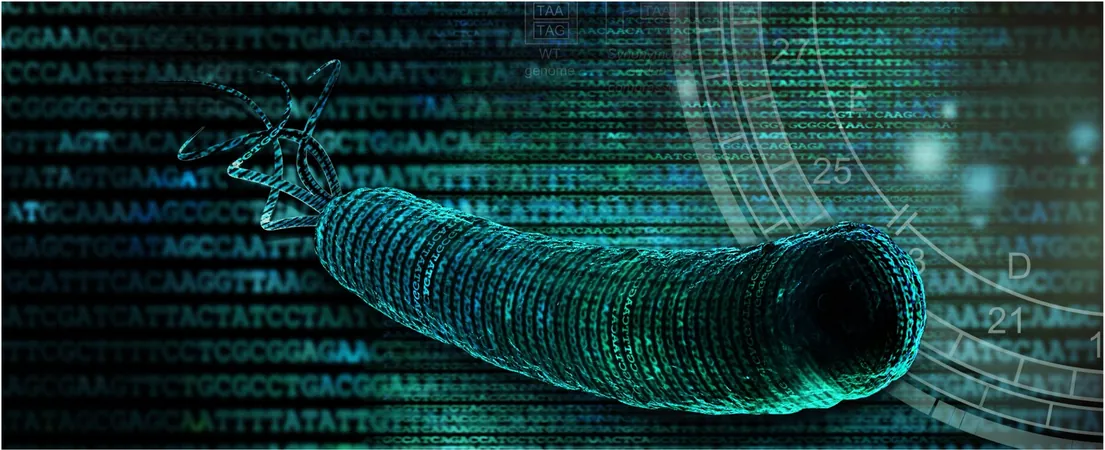
Revolutionary Genetic Breakthrough: Scientists Condense E. coli to Just 57 Codons!
2025-08-01
Author: Li
A New Era in Genetic Engineering
In a groundbreaking achievement, scientists have succeeded in shrinking the genetic code of E. coli from its usual 64 codons down to an astonishing 57. This monumental feat not only highlights the complexities of life's genetic frameworks but also paves the way for revolutionary advancements in biotechnology.
Understanding Codons and Their Redundancies
Every living organism utilizes codons—triplets of nucleotides that instruct cells on protein synthesis. Out of 64 possible codon combinations, only 61 serve for amino acids while 3 act as stop signals. This redundancy, once thought to be mere evolutionary leftovers, may actually offer a safeguard against genetic mutations.
From 64 to 61 Codons: The First Major Reduction
Back in 2019, a pioneering team trimmed E. coli's genetic code to 61 codons by enacting over 18,000 modifications, birthing the now-famous Syn61. This innovative microorganism is not only virus-resistant but also promises enhanced reliability in drug manufacturing and material creation.
A Leap Further: Enter Syn57!
Now, a new consortium of scientists—including veterans from the Syn61 project—has taken it a step further, crafting the new strain Syn57. Their meticulous efforts involved over 101,000 changes across 38 segments of the genome, ensuring that each codon swap did not harm the bacteria's viability.
Meticulous Methodology for Maximum Success
The researchers employed a sophisticated method of continuous defect mapping, allowing them to swiftly rectify any emerging issues during the codon substitution process. This dynamic approach enabled them to identify and fix local defects, resulting in successful synthesis.
Implications of the New Strain
While the newly engineered E. coli strain demonstrates slower growth—approximately four times slower than its predecessor—the distinct gene expression profile hints at significant physiological adaptations. The potential applications are vast, ranging from virus-resistant biotechnological solutions to the creation of novel proteins and polymers.
What Lies Ahead for Genetic Research?
This pioneering study raises intriguing questions about the limits of genetic modification and the possibility of creating organisms with unprecedented biochemistries. The authors assert, "This work exemplifies how genome synthesis can explore uncharted territories of genetic sequences that nature hasn't ventured into."
The Future of Synthetic Biology Awaits!
With Syn57 as a stepping stone, researchers are optimistic about the future, envisioning a world where engineered organisms can lead to new industrial advancements and health solutions. The journey of genetic exploration continues, and the excitement around these developments is palpable!

 Brasil (PT)
Brasil (PT)
 Canada (EN)
Canada (EN)
 Chile (ES)
Chile (ES)
 Česko (CS)
Česko (CS)
 대한민국 (KO)
대한민국 (KO)
 España (ES)
España (ES)
 France (FR)
France (FR)
 Hong Kong (EN)
Hong Kong (EN)
 Italia (IT)
Italia (IT)
 日本 (JA)
日本 (JA)
 Magyarország (HU)
Magyarország (HU)
 Norge (NO)
Norge (NO)
 Polska (PL)
Polska (PL)
 Schweiz (DE)
Schweiz (DE)
 Singapore (EN)
Singapore (EN)
 Sverige (SV)
Sverige (SV)
 Suomi (FI)
Suomi (FI)
 Türkiye (TR)
Türkiye (TR)
 الإمارات العربية المتحدة (AR)
الإمارات العربية المتحدة (AR)